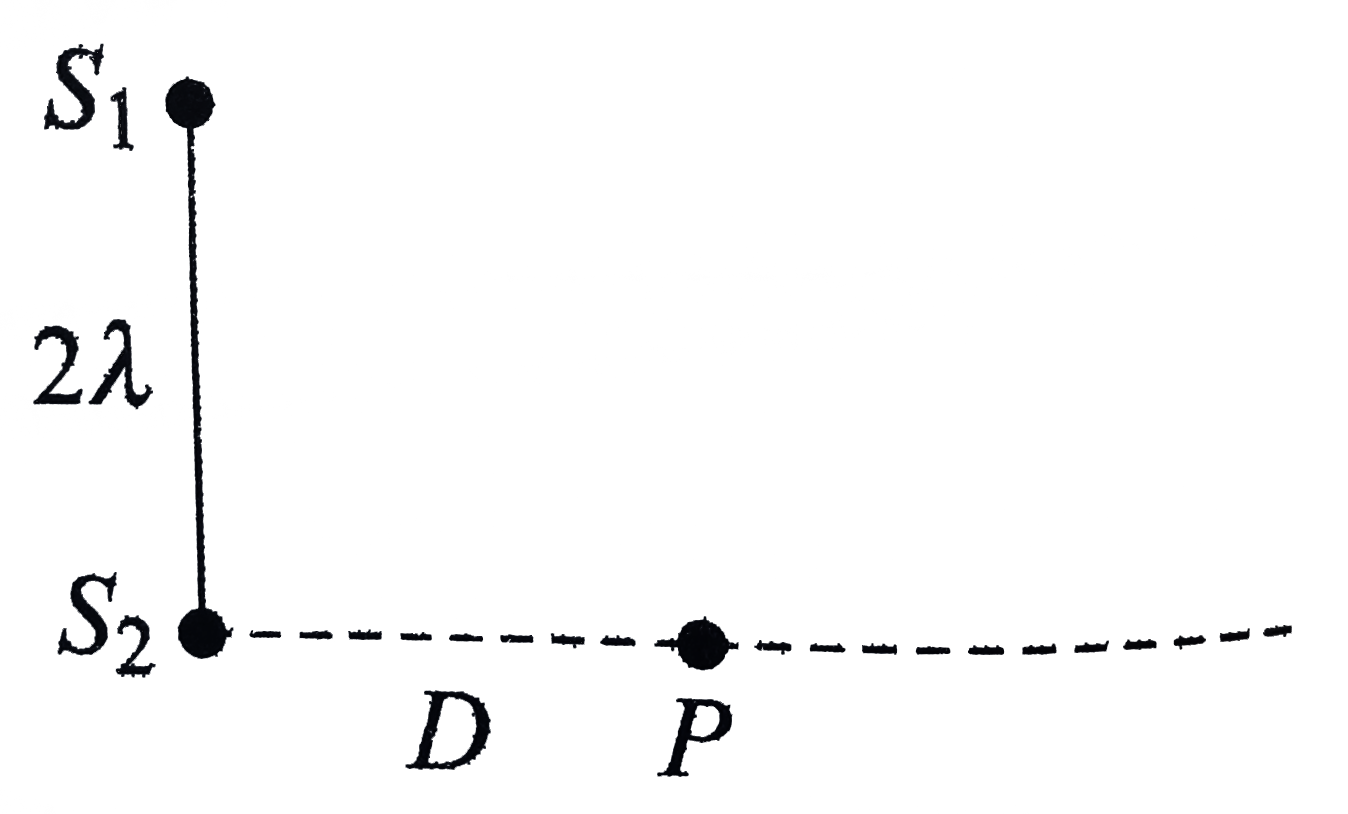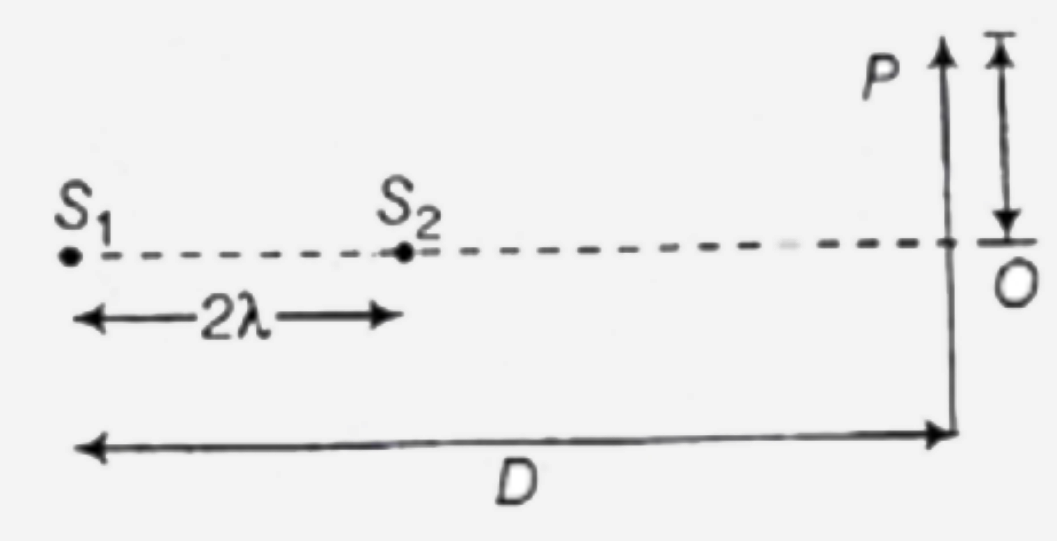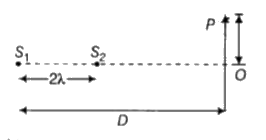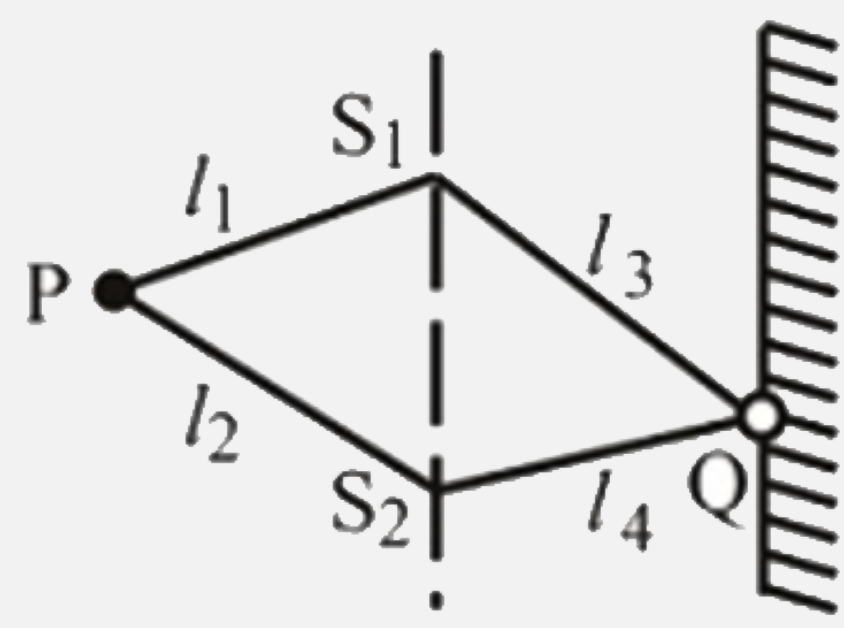Two identical light sources S1 and S2 emit light of same wavelength λ. These light rays will exhibit interference if
(a) Their phase differences remain constant
(b) Their phases are distributed randomly
(c) Their light intensities remain constant
(d) Their light intensities change randomly
The correct Answer is:A
For interference phase difference must be constant.
Topper's Solved these Questions
- BOOK - A2ZCHAPTER - WAVE OPTICSEXERCISE - Young'S Double Slit Experiment111videos
WAVE OPTICS
- BOOK - A2ZCHAPTER - WAVE OPTICSEXERCISE - Polarisation Of Light37videos
WAVE OPTICS
- BOOK - A2ZCHAPTER - SOURCE AND EFFECT OF MAGNETIC FIELDEXERCISE - Section D - Chapter End Test30videos
SOURCE AND EFFECT OF MAGNETIC FIELD
Similar Questions
Two coherent point sources S1 and S2 vibrating in phase emit light of wavelength λ. The separation between the sources is 2λ. Consider a line passing through S1 and perpendicular to line S1S2. Find the position of farthest and nearest minima.
 .View Solution
.View SolutionTwo coherent point sources S1andS2 vibrating in phase emit light of wavelength λ . The separation between them is 2λ . The light is collected on a screen placed at a distance D>>λ from the slit S1 as shown. The minimum distance, so that intensity at P is equal to the intensity at O
 View Solution
View Solution
Knowledge Check
- Question 1 - Select One
Two coherent point sources S1 and S2 vibrating in phase emit light of wavelength λ. The separation between the sources is 2λ. Consider a line passing through S2 and perpendicular to line S1S2. Find the position of farthest and nearest minima.
 .A7λ12B15λ4Cλ2D3λ4
.A7λ12B15λ4Cλ2D3λ4 - Question 2 - Select One
Choose the most appropriate option.
Two coherent point sources S1andS2 vibrating in phase emit light of wavelength λ. The separation between them is 2λ. The light is collected ona screen placed at a distance D>>λ from the slit S1 as shown. The minimum distance, so that intensity at P is equal to intensity at O.
 A√2DB√3DC√8DD√5D
A√2DB√3DC√8DD√5D - Question 3 - Select One
Following figures shows sources S1 and S2 that emits light of wavelength λ in all directions. The sources are exactly in phase and are separated by a distance equal to 1.5λ. If we start at the indicated start point and travel along path 1 and 2, the interference produce a maxima all along
 A(a) Path 1B(b) Path 2C(c) Any pathD(d) None of these
A(a) Path 1B(b) Path 2C(c) Any pathD(d) None of these
Two coherent point source S1 and S2 vibrating in phase emit light of wavelength λ. The separation between them is 2λ as shown in figure. The first bright fringe is formed at 'P' due to interference on a screen placed at distance 'D' from S1(D>>λ), then OP is

1) √3D,2)1.5D,3)√2D,4)2DView SolutionTwo identical narrow slits S1andS2 are illuminated by the light of a wavelengthλ from a point source P. If , as shown in the diagram above , the light is then allowed to fall on a screen , and if n is a positive integer , the condition for destructive interference at Q is

View SolutionSources 1 and 2 emit lights of different wavelengths whereas sources 3 and 4 emit light of different intensities.
The coherenceView SolutionTwo identical narrow slits S1 and S2 are illuminated by light of wavelength λ from a point source P. If, as shown in the diagtam above the light is then allowed to fall on a scree, and if n is a positive integer, the condition for destructive interference at Q is that
 View Solution
View SolutionWhen a point light source, of power W, emiting monochromatic light of wavelength λ is kept at a distance a from a small photosensitive surface of work function ϕ and area S. Then
View Solution

